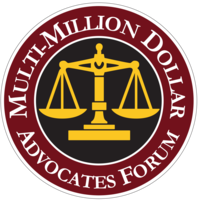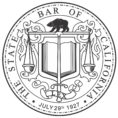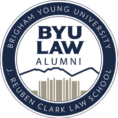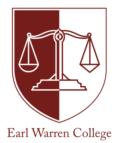How Are Wrongful Death Settlements Paid Out?
When you secure financial compensation in a wrongful death suit, it will be paid as a lump sum or a structured settlement. A wrongful death attorney can fight for a fair settlement for you and negotiate an agreement that defines terms for the distribution of funds.
Various factors, including your personal circumstances and the defendant’s, may influence your payments. So what if you want to find out? How are wrongful death settlements paid out?
Of course, the first step is to hire a qualified attorney to pursue your wrongful death lawsuit for your family. It all starts with a free consultation with a Harker Injury Law wrongful death lawyer. Fill out our online contact form, and we will call you back soon to discuss your claim.
Damages in Wrongful Death Cases
Wrongful death settlements can help grieving families cope with the financial losses they suffered due to their loved one’s death.
One of the major ways a wrongful death lawyer can help you is by calculating a fair settlement for your losses. He or she can then negotiate with the defendant and their insurance company or even represent you in court to fight for the compensation your family needs.
There are two forms of damages you can pursue in wrongful death cases: economic and non-economic.
Economic damages
Economic damages reimburse you for financial losses you have suffered due to your loved one’s death, which may include:
- Medical expenses
- Funeral costs
- Burial expenses
- Lost wages
- Loss of future earnings/financial support
Non-economic damages
The impact of losing a loved one in death extends far beyond the financial impact. Although settlement money can never bring your loved one back, it can acknowledge the pain and suffering you have endured.
Examples of non-economic damages include:
- Grief
- Mental anguish
- Loss of companionship
- Loss of consortium (normal marital relationship)
A compassionate and experienced wrongful death lawyer can examine the full impact of your loss. You can be sure that he or she will fight for a fair settlement that reflects the ordeal you have endured.
Damages in Child Wrongful Death Cases
Losing a child in an accident caused by another party’s recklessness is something no parent should have to endure. Tragically, in 2020, 607 children lost their lives in motor vehicle crashes.
When another party is at fault, you have every right to pursue compensation.
Under California state law, different rules apply to pursuing damages in these cases, depending on whether the child was a minor or an adult (aged 18 years or over) at the time.
Parents may be able to pursue damages for:
- Financial support the minor would have contributed during his or her life
- The loss of benefits the parents could have expected to receive
- Funeral expenses
- Burial costs
- The value of household services the minor would have provided
Additionally, in some cases, parents may be able to pursue financial compensation for non-economic damages such as pain and suffering. An experienced California wrongful death attorney will be able to guide you through all the options open to you.
Wrongful Death Payout Process
After winning a wrongful death settlement, there are only two ways that the compensation can be paid:
- Lump sum, or;
- Structured settlement
How the funds are paid out will be negotiated between the parties involved. The final arrangements may depend on who is paying the compensation.
Lump Sum Payments
If the other party’s insurance company is responsible for paying the settlement, it will likely pay a lump sum. The insurance company should have enough funds to cover the entire amount in one payment.
If the responsible party is personally liable for the payment and has sufficient funds, he or she may also choose to pay a lump sum.
Advantages of lump sum payments
Lump sum payments allow the surviving family members to cover several payments immediately, including:
- Medical bills
- Funeral and burial costs
- Legal fees
- Deceased person’s final expenses, including any outstanding debts
Gaining access to funds immediately can also help the family avoid paying excessive interest.
Disadvantages of lump sum payments
Wrongful death settlements paid as a lump sum can be overwhelming for some people. If the money is not used wisely to pay down debts accrued first, the victim’s family may find themselves without the funds to cover the debt and face financial difficulties.
Structured Settlements
In many cases, the at-fault party does not have the funds to pay compensatory damages in a lump sum. Instead, he or she can arrange to pay over a period of time.
At other times, the victim’s family may prefer to receive the settlement amount in stages rather than in a lump sum.
Advantages of structured settlements
Structured settlements may require payments to be made to the victim’s family members every month and can provide ongoing financial certainty. This may be especially helpful to families who were reliant on the deceased’s income.
Disadvantages of structured settlements
Surviving family members may have already faced significant out-of-pocket expenses, such as medical bills and funeral costs. Additionally, if they have debts relating to these expenses, they can only pay them off incrementally, which may lead to higher interest payments.
Once you have entered into a settlement agreement, it may be very difficult or even impossible to change the terms. Additionally, there is always a risk that the defendant will stop paying too early.
However, working with an experienced wrongful death attorney could protect you in this case. He or she can mitigate the risk by including protections in the settlement agreement.
Getting the right settlement payout arrangements for your family
These pros and cons highlight the importance of a wrongful death attorney’s role in negotiating a settlement proposal that works for both sides. A qualified wrongful death attorney can help the victim’s family by defending their interests in settlement negotiations and ensuring that settlements are paid in a way that works for them in the long term.
Who Can File a Wrongful Death Claim?
When an adult dies in California, state law allows one of the following relations to file a wrongful death suit:
- Spouse or domestic partner
- Surviving children
- Grandchildren (if the children are deceased)
If a person dies with no surviving relatives, California law allows for anyone entitled to the deceased’s property under intestate succession to file a wrongful death suit. Additionally, other parties who were financially dependent on the deceased may also file a claim.
For example:
- The putative spouse of the deceased (a person who, in good faith, believed he or she was in a lawful marriage with the deceased person but was not)
- The children of the putative marriage
- Stepchildren
- The parents of the deceased
- The legal guardians of the deceased, if the parents are no longer alive
In wrongful death claims, all potential claimants must join one single claim.
Who Receives Damages in Wrongful Death Claims?
No matter who files the wrongful death lawsuit, the damages are distributed among the surviving relatives. The distribution arrangements may be agreed upon between the family, or, if this is not possible, a court hearing may be needed to decide how the settlement should be divided.
The court will consider several factors, possibly including the following:
- Beneficiary’s financial needs
- Housing
- Education
- Closeness of the relationship
These matters require delicate and diplomatic handling. That’s why it pays to work with a compassionate and experienced wrongful death attorney who has handled many such cases before.
Tax Repercussions of Wrongful Death Settlements
In most cases, you do not have to pay taxes on wrongful death settlements.
Title 26 of the Internal Revenue Code (§104. Compensation for injuries or sickness) states that “gross income does not include the amount of any damages… received.” The code also clarifies that this is true whether funds are received as lump sums or periodic payments. Therefore, in most cases, the victim’s family will not have to pay income tax on a wrongful death settlement.
Exceptions to consider
That being said, if the surviving spouse or another family member already deducted certain expenses from his or her taxes, a proportion of the settlement may be taxable.
For example, before your loved one died, you may have deducted the cost of certain medical expenses from your taxes. If you receive compensation to cover these losses, the portion of the settlement reimbursing you for these expenses will be taxable.
A further exception to this code would be if punitive damages were awarded to the heirs of the deceased. Yet, that is not possible in California, as there is no provision under state law for recovering punitive damages in wrongful death cases.
Seek qualified advice
As with all tax matters, it is important to get qualified advice. Your wrongful death attorney may discuss your questions with you or be able to direct you to a qualified person who can advise you on your personal tax affairs.
Trust Harker Injury Law With Your Wrongful Death Claim
Wrongful death lawsuits can be complex. Pursuing the settlement you deserve requires a tenacious and meticulous approach. Then, if you do successfully win your case, it takes tact, discernment, and consideration to create distribution arrangements that work for everyone.
At Harker Injury Law, we have a track record of delivering great results for families who have been bereaved due to someone else’s negligence. Our personal injury attorneys treat all our clients like family, and that includes working to ensure that your settlement is paid out in the best possible way for you.
Let us take the weight off your shoulders. Call us today at 760-INJURED or fill out our online contact form for a free consultation with a wrongful death attorney who is on your side.










